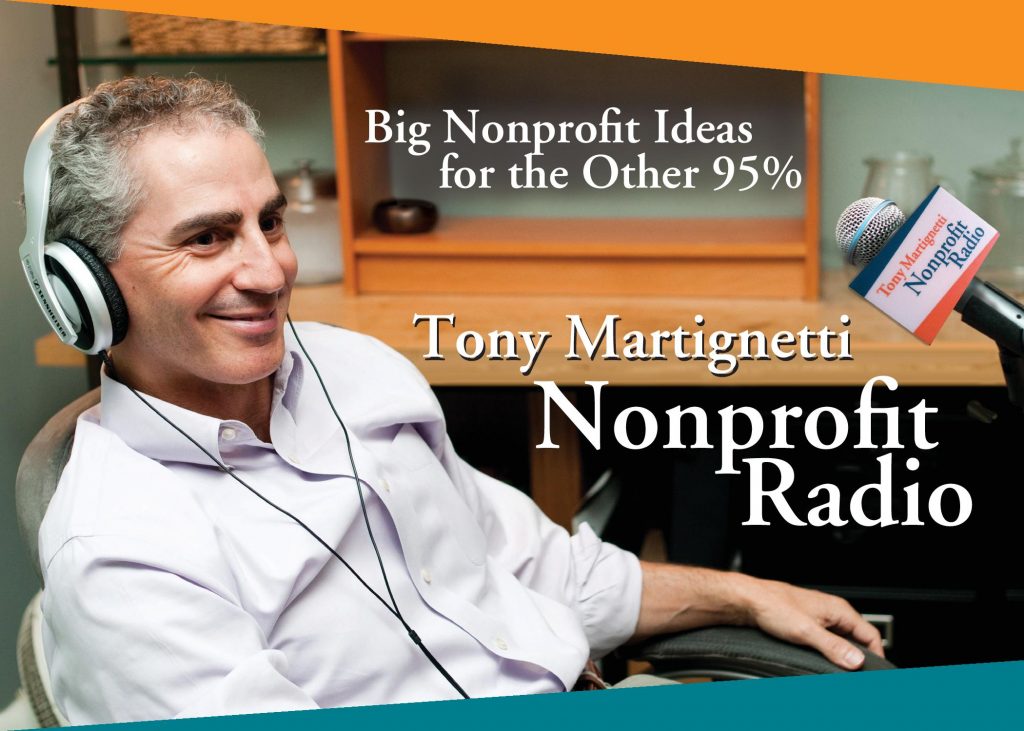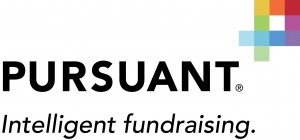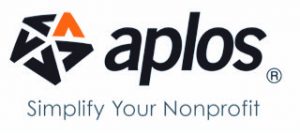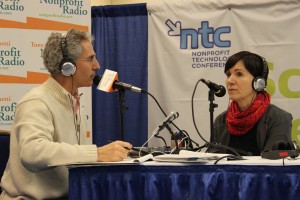I love our sponsors!
Do you want to find more prospects & raise more money? Pursuant is a full-service fundraising agency, leveraging data & technology.
WegnerCPAs. Guiding you. Beyond the numbers.
Credit & debit card processing by telos. Payment processing is now passive revenue for your org.
Fundraising doesn’t have to be hard. Txt2Give makes it easy to receive donations using simple text messages.
Get Nonprofit Radio insider alerts!
Listen Live or Archive:
- On Fridays at 1pm Eastern: Talking Alternative Radio and tune in
- Listen to the November 16, 2018 archived podcast
My Guest:
Brian Saber: Asking Styles
 In fundraising solicitations, one size does not fit all. There are different styles and personalities. Brian Saber sorts them out to make you a comfortable, confident and effective fundraiser, based on what you bring to the process. He’s the author of the book, “Asking Styles.”
In fundraising solicitations, one size does not fit all. There are different styles and personalities. Brian Saber sorts them out to make you a comfortable, confident and effective fundraiser, based on what you bring to the process. He’s the author of the book, “Asking Styles.”
Top Trends. Sound Advice. Lively Conversation.
Board relations. Fundraising. Volunteer management. Prospect research. Legal compliance. Accounting. Finance. Investments. Donor relations. Public relations. Marketing. Technology. Social media.
Every nonprofit struggles with these issues. Big nonprofits hire experts. The other 95% listen to Tony Martignetti Nonprofit Radio. Trusted experts and leading thinkers join me each week to tackle the tough issues. If you have big dreams but a small budget, you have a home at Tony Martignetti Nonprofit Radio.
Get Nonprofit Radio insider alerts!
Sponsored by:
View Full TranscriptProcessed on: 2018-11-18T16:22:18.047Z
S3 bucket containing transcription results: transcript.results
Link to bucket: s3.console.aws.amazon.com/s3/buckets/transcript.results
Path to JSON: 2018…11…416_tony_martignetti_nonprofit_radio_20181116.mp3.427416477.json
Path to text: transcripts/2018/11/416_tony_martignetti_nonprofit_radio_20181116.txt
Hello and welcome to tony martignetti non-profit radio big non-profit ideas for the other ninety five percent. I’m your aptly named host. Oh, feels so good to be back in the studio after six seven weeks away and i’m glad you’re with me. I’d be forced to endure buba analgesia if you paint me with the idea that you missed today’s show asking styles in fund-raising solicitations, one size does not fit all. There were different styles and personalities. Brian sabers sorts them out to make you a comfortable, confident and effective fundraiser based on what you bring to the process. He’s the author of the book asking styles i’m tony. Take to my farewell. We’re sponsored by pursuing full service fund-raising data driven and technology enabled tony dahna slash pursuant by wagner. Sepa is guiding you beyond the numbers. Regular cps dot com by tell us turning credit card processing into your passive revenue stream. Tony dahna slash tony tell us on by text to give mobile donations made easy text. Npr to four four four nine nine nine what a pleasure to welcome brian sabre to the studio he has personally solicited thousands of donors as a director of development executive director and consultant over thirty years. Working with non-profits, he needs training programs and speaks nationally about asking styles to help people understand and embrace their unique strengths. As fundraisers. You’ll find him at asking matters dot com and he’s at brian saber. He’s a kindred spirit. We’re going to find out what that’s all about. His book is asking styles revolutionize your fund-raising. And i’m so glad to welcome him. Brian. Welcome to the show. Well, thank you, tony, for having onto the studio my pleasure. A little closer to the mike, the internet. Intimate with that thing. Okay. All right. Now, back in two thousand eleven, almost almost to the day was the november of two thousand eleven. Seven years ago, i had andrea kill stayed on. We talked about asking stiles. Um what? What? What’s happened? What’s evolved since then? Seven. In these seven years. Seven years? A lot. When andrea was on in twenty eleven, we had been quote live for about a year and meaning the asking matters site had been up and we had been promoting the asking styles. And so now we’ve had another seven years to delve into all of this material and what the first thing that changed probably about twenty thirteen, i think, is we change the results a little bit. So you might recall from twenty eleven tony that there were something like thirteen results, you could be one style. You could be two styles. You could be three adjacent styles, or you could be all four. And one of the things we found was that it wasn’t giving the staff and volunteers enough direction in terms of what to do, we found that too scattered, too scattered to say you’re all four or guo your these three didn’t give people a framework or a roadmap forward. And so we we actually tinkered with the assessment, and we narrowed it down to eight results. So everyone has a primary style and a secondary style. Okay, so the primary style is really what you lied from in the secondary gives you a sense of which of these two characteristics on the asking style graph is your dominant characteristic, whether it’s your introversion or extra version or your analytic or your intuitive side. And so having that as a guide gives people more to go on, right? So they’re still not locked into a narrow. Did you narrow your focus is that you focus it without saying you’re in this box or you’re in that box. We wanted people to have a little leeway there, because sometimes when you tell people this is exactly what you are, they say, no, that’s not what i am. And we didn’t want that right now. Andrea is no longer with asking styles and asking matters. Well, yes and no. We are no longer partners. I bought her out in twenty thirteen, but she is now. You bought her out. This was not a force. Was this jeff sessions? A kind of buyout? Are you trump out of session? In fact, andrea, i’m your request. I give my resignation and by and let you buy me out cause i get her on the phone. Yeah, i get it. I’ll get to that available. Did she say she’d be waiting by the phone today? Now she’s actually booked, but but all i did inquire are i know no, it’s graphic. She killing to me and said, i know what i think you should take it over. Andrea is one of the foremost creators of incredibly creative, sorry to use that twice ideas and products. She has brought so much terror field and she loves developing new stuff and constantly is doing so. She has endless undertaken to do it. But she said, you know what brian and andrea not go get? She’s a go getter, right? Talk about all the things we’re gonna talk about. All these right? Kindred spirit. Go get it and show you she’s gone. She’s gone and she is no getting rid of years older than me not to say anything to you what a chunk of your mother she is. And she said, you know what, brian? You can run with this for a long time. I’m not going to want to run this business for a long time. I like creating the ideas. I’ve got places to go. Exactly. And she has. She’s created more new things. It’s incredible. So and it actually inmate sent. So yes. So i took it over. And and but andrea is one of the four experts at asking matters. So she is actually still providing content, doing webinars on dh and such. I have a couple of people who have particular expertise is entree is one of them. So we’re still involved ethan and dear friends, ok, yes, i know. I do know, you never ask a question. You don’t know the answer. But now i do that all the time. Lots of questions, i don’t know answers to, um all right, so we’re going to get to all these, uh, all these different personalities, all these different asking styles, all the different styles, but we got a lead into it. So what a premise of the book is that there is no ideal way toe ass. And we’re talking about fund-raising solicitations. They asked the solicitation, that’s what prism. Everybody knows that. But make it explicit. But there’s no one way to do it. There’s no ideal way everybody brings something different we’re going to capitalize on. There’s no set way. That’s the best. There are best practices in the field. Yeah, but so much of it is about personality and relationships, and that means every one of those is going to be different, and you need to bring your true self and you. And that’s another theme throughout the book, all right. Authenticity and want us to be authentic. In our ask absolutely every step of the way. Because otherwise you can’t form a true relationship of the donor. And if you don’t do that, then the gifts they’re just transactional what we want his donors who really care and believe and want to be involved for the long haul. And that’s only gonna happen if they believe they’re having an authentic relationship with with the fundraiser in the organization. And can’t they tell us they tell him? Absolutely, mister, um is corporate, and it’s not your true self right talking to them, i say all the time. If you if you give your board an elevator pitch and expect them all to go out and give that same exact pitch, unless some of them are amazing actors, almost all of them will sound phony, right? You want everyone to talk from his zoho nick’s own experience in his or her own words. And why is this better done in person than any other method? When we’re in person, a level of empathy develops between us that just doesn’t develop some other way. When we’re sitting across from each other and looking in each other’s eyes, we care more about each other. We’re more vested. We want to come through for the other person. So there’s this bond that you just don’t get when you get a letter in the mail or an email or even a phone call. Because that voice khun b disembodied the reason i prefer to have guests in studio that, you know, body language is another one inflexion, you know, so special, you know, like i’m giving you the finger right now. So you know that, you know that it’s not going well. Okay, so we wait. We take a first break. Very good. That’s the figure i’m giving you. This is the one i didn’t say that. Did i say middle fingers that i say hold it. Maybe i’ll forget it. All right. I’m going up. The index finger pursuing they’re e book is fast non-profit growth stealing from the start ups. They take the secrets from the fastest growing startups and applied those startup growth strategies to your non-profit. It’s free as all their resources are. You’re accustomed to that? It’s on the listener landing page. You know where the listener landing pages? You’ve heard me say it repeatedly. Repeatedly. It’s tony dot m a slash pursuant. Remember the capital p for please. Now back to asking styles. All right. S o much better done in person. All the reasons that i prefer to have guests in studio. I mean, i’m happy to have call, but i’m very glad that you were able to make it in from moline, illinois. Att for am or so what demanded it for am work airport? Because we have this huge storm. Yesterday, it was crazy. And i was lucky to get in because when i landed at newark, there were thousands of people sleeping on the floor i couldn’t believe it was doing here. And people still trying to get onto planes at three. Fifteen. And then when we came through chicago, i did, which was its own madness. Yeah. Ok, that’s not a good way. Okay, so, midway, i mean oh, here must have been a madhouse. Also, it wass everything was a madhouse. Yes, everything fell apart. Transportation was yesterday not surprising. I’m glad you made it. Thank you. Checked in to do it by phone, but i considered renting a car. If i couldn’t get out and driving from davenport, iowa, it was it was fourteen hours, and it turns out i would have gotten home about the same time. Really, you could’ve made it a job if you could have got if you couldn’t write. So asking in person is better. But it’s hard. Yes, it is. It is. It is hard. Just feel better about why it’s worth the difficulty that we’re putting in. No one makes their biggest gift by direct mail by phone accufund by special events. If you want someone’s biggest gift, you have to develop a relationship with them. Over time, no one gives their biggest gift right off the bat. It usually comes over time as they get closer to the organization, as they understand the organization better. And and especially in this day and age where i think we’re starved for in person, right, so much is happening electronically. It makes the in person even more special. But it’s virtually none of those names you see at the top of the donor roster or on a building or a room. None of those gifts came from a phone, a thon or direct mail appeal. They came from building these relationships, so and eighty seven percent of all charitable gifts come from individuals, so almost told to give a compliment of it. You include family foundation’s yes, family foundations in there, as well as the individual gifts and the bequests there. And those total up the eighty seven percent. Wow, you did your homework. I read this book, i think. Very good. I’m disappointed that you’re impressed. That here is shocked. I’m disappointed that you’re surprised that she always put together, for god’s sake, i’ve been at the studio for six weeks. Of course, lycan youth rallied for one show. Excellent. It’s all downhill from here for next two months so well and and your subscription on itunes going going down after this week? Yes. So eighty seven percent of all the gifts come from individuals, and the biggest gifts come from asking in person. So if you want to fulfill the vision of your organization, if you want to have the biggest impact your organization can have, you have to go out. But ask individuals in person. But there’s a risk of you might take personal when there’s a rejection. You know how important it is to the organization or you over you over perceive how important it is. It’s life or death. You know, there’s a lot of personal risk in doing it. Face-to-face there certainly is, and depending on our style, more risk than not. Yeah, and i know we’re going to get into that in in a bit. I will share. And i i share with everyone. People think because i have been in thousands of meetings and i’ve raised tons of money and all my organizations have been very successful with the results that i am this stereotype of a fund raiser that i’m something most people can’t be, that i’m slick and confident, and i get in those meetings and i ask for big gifts. And if people push back, i push back. And i i don’t take rejection personally in all of this stuff and and there are might be a few people like that in the field. But i’m not like that. I’ve had all my own issues to grapple with all these years, and i like most people fund-raising not because we think fund-raising is the most exciting, wonderful thing we could ever do in our lives. But because it makes a difference, none of us grow up saying i want to be a fundraiser. I i asked this question every time i train, virtually no one raises their hand. We we we get the bug for doing something good in the world. We care about the arts, education, religion, a medical cause, whatever it is. And then we’re not a doctor or a musician or whatever, but we realize there’s a way that we can help. And that’s by fund-raising, too, so that our organizations have the resource and help musicians and doctors exactly. And social services, social workers. So we most of us come to it in a circuitous fashion. Not because we have some stereotypical skill set that people think of fundraiser has tohave. What we really need to have is the ability to form a relationship which almost all of us do have right. There are some people who’d rather antisocial let’s go about it at different in different ways. Exactly. Think pacers ways different levels of anxiety, etcetera. All right, let’s get i want just one more point. That is that after thousands of solicitations, i still confined it daunting. I can still be anxious. I can still fun for in a meeting and i still take rejection personally, even though i know i’m not supposed to thank you for opening up. I admire that. Thank you. Alright, let’s get into the styles. Now there are two acts. Do you know the plural of access? Because you worked at a c actually. Exactly right. Axes. Now axes. X s has the distinction of being the on ly word in the english language. That is a plural. For three words is the plural for acts a x axe axe e and it’s also the plural for access. Ex maxis, according to read its bona fide. I read it online. So it has to be true. It must be true. Must be true. All right, so let’s get to the axes. All right, listeners, i’m encouraging you, teo. I mean, you could you can go to asking matters dot com and isn’t there? Isn’t the chart there you’ll see? Right? You’ll see the chart. Okay. Don’t go asking matters dot com. You’d go there. But if you if your podcast listening with the vast majority do, uh, just you need a pencil on paper? It helps. It helps. I mean, you can try to visualize it if you insist, but it helps to have a piss peple a piece paper and pencil draw. Draw a vertical drop vertical axis and what we put on the vertical axis we put you. Look, don’t you guys to look? He’s looking at my teaching e. I wrote the book is look at my sheet people less. Well, where you bonem five. Well, where’s andrea? Didn’t you get her in? Get her bath started here. I think you made it. I think you made a blood thing is a big opportunity to buy you out. It’s funny. I was listening to her podcast and she was so articulate about how you lay this out when i need her to come here today and say that i was safe. She is our first date, so you have to drop both axes. Okay. Did you need the x and a y? Ay, right. One’s vertical once horizontal when they intersect. And they do the middle in the middle. Middle. Not like i wouldn’t make a bar chart from the origin that’s called the origins and mental virgin, so above ha sergeant must sign ok on on that y axis is in is extra version and blow the x axis. Is the introvert okay? That’s the vertical estonian. Why access and accept. Right? But, yes, the vertical line has introvert on top and no extra vert extra proton from atop an introvert. You right on the bottom, karaca. And they have the look you’re not okay. And on the horizontal, i’m a visual learner. I think it’s a link in my own material. Looking my own book. Damegreene goodcompany i didn’t bring your book. My copy. Your book. I guess that was a mistake for you. I have one. Okay. If i have to take it out and then on the x axis landing to the left and right of the vertical line, you have thie, analytic and the intuitive. So analytical is on the left. Correct and intuitive goes on the run. Right. Okay. Can i have your two lines and your four words? Right? You do? Okay. S so we know that you were in a couple of spectrum’s now. So which is which? Is this the style that you like that you seem to always start with? Go get her. You seem to know a mission control’s sorry. No, no, no. I’m sorry, rainmaker. I go from top left and i go claim make right, you stop. Rain, right. Go get our kindred spirit control. So in the tommy off here, tony top lefty, i wish you we gotta get gets to know their material. I’m in diamond barrister. You never know. I live in breach of it every single day. No, we wouldn’t. We wouldn’t. Quite right about that. Thank you. Ah, andrea was articulate. E missed that sometime we’ll have parents, so in the upper left, you right, rainmaker, correct on then in the upper right, you write go gets the go getter, correct. And then in the lower right, you write kindred spirit. Yes, you do. That’s you. That is me and you. We think we’ll come back to that. We’ll come back to that. I have an announcement about that. Okay. And in the lower left, your writing mission controller. Correct. Mission controller. Ok, um what is it? Just give us the overview of these. These four, like sure. How do they relate to each other before we get into the individuals? And how do they relate? How are they different? How are they different? Yeah, well, the key difference. The easiest way to think of the difference is through the core question. Each of these styles asks very good when trying to figure out what’s important to me. What’s going to drive me? The rainmaker top left, the analytic extroverted says. What’s the goal? It’s very quantitative. It’s something you can calculate. You know, when you’ve reached it, i’m going to raise a million dollars. I’m going to close ten gifts. I’m going to do glorious golden lorien. Did the ring make goal oriented? Top right? Go get her, go get her asks. What’s the opportunity? Like the rainmaker, the go getter is looking in the future. But the the go getter is looking more globally, less specifically. What is the vision? What is possible? Reduce poverty in right moline, illinois. This khun b so excellently provoc eliminate poverty, eliminate hunger, save the whales. It’s that type of looking vision for the future picture opportunity wise, right? The kindred spirit bottom, right? The intuitive introvert is saying, what moves my heart? What am i feeling? Because the kindred spirits decisions are all personal, they come from the heart and what they’re feeling inside and the mission controller says, and that’s the bottom left. The analytic introvert says, well, what’s the plan, guys? Because it’s okay to have goals and opportunities and a vision and to feel something. But if we don’t have a plan, we’re not going to get there. It needs to make sense. You need to see how you’re going to get from a to b. This is your detail person. Mission controller. What’s our plan for getting as you just said. Okay. Okay. I love that. All right, um, so let’s talk about then. Let’s let’s make it a little personal before we get into the more abstract, you know, planning your your asks, etcetera, etcetera. Dahna. So you’re you’re you’re an avowed kindred spirit. Yes, i now what’s your secondary mission controller? Mission controller. Ok, you went the other way for me. Okay. Okay. Ah, so so it’s a little more, in essence, that’s you since your kindred spirit. And we would you share that dahna say a little more about the kindred spirit. What? Sure. What do you love about it? And what? What? What makes it a challenge for you? Well, i what i love about it well, i’m embracing myself for who i am. Hard right? We all should embrace ourselves for who we are. I think developed developing this stiles has allowed me to embrace myself and be comfortable with who i am is a fundraiser and a person, and to say, you know what? I am feelings oriented. I take things very personally. I have a big heart. I want to help everyone. I want everyone to feel good. I want to be heard. I want to be seen. All of that is very important to me, those relationships and those feelings and on, and that’s what i lead with. And when i developed relationships with donors, they’re very much based on that there, very personal, and they’re very warm. And that’s that has been my avenue to success over the years as much as anything. Building those relationships very personally. Having a mission controller secondary, however, even helpful talking about the one what you have to overcome as way. We have to need to overcome his kindred spirit. What are our challenges? Well, no one loves rejection, and we do face a fair amount of it in fund-raising, or at least the there’s that fear that it will happen. And for kindred spirits, it’s personal, right for others. Okay, i got rejected, but it was about the donor or it was about the system or they didn’t believe in the vision or whatever. When we put ourselves out there and someone and we really believe we do it because we believe our heart is in it and then someone doesn’t want to support it doesn’t agree. It’s very hard for us. Did we do something wrong? That’s so upsetting? They don’t they don’t want to support what i believe in, and i believe in it so much. How can they not believe in it? It’s it. And i was telling this, ah, this room of fundraisers yesterday in davenport, iowa, that no, that yeah, i’m never going to get that past that you’re never going to get past that feeling, right, and you just have to you just have to embrace it. And no matter how hard i try not to make things personal, they are personal. So i have to just say their personal. What can you do that they’re going to be personal? Said earlier. Even though you know that’s not the way to feel about it, right? It still happens, right? And hopefully, just by knowing it. And some would say under overstaffed ing it being ableto look outside myself and say, okay, i can see you’re that way except it and we’ll figure out howto work with that, that it’s much better tham thinking i’m lesser because i take yeah, don’t write not lesser, just it’s fact based. We were not making judgment value judgments here. But you know, there are value judgments in society about that, and i do think kindred spirits are often judged. Introverts are judged to be inferior to extroverts, though there’s so much talk about this recently, and susan kane has this amazing book on it on the power of the introvert rights called quiets. A fantastic book. Quiet, quiet! Yes, the power of the introvert. I think it’s in a world that can’t stop, can’t stop talking something like that. But in fact, introverts or not is highly regarded, right. And i don’t think intuitive czar as highly regarded as is analytics, which is why everyone keeps thinking of the rainmaker, the analytic, extroverted, as something special and better. I think there is a bias in some ways towards and away from various people of different personalities. But we don’t have to take that bias to ourselves. We’re the person we don’t have to well, judge ourselves. Correct. Based on what society probably is judging, we have to block out the noise and believe in ourselves. Let’s move over to the left and you’re the your secondary style is the mission controller. That’s ah s o. That’s the plan that you’re the planner? Yes. How do we get there? So it’s funny. I details. I make lots of lists, and i always think they need to be better organized. And i’m always taking pieces of paper and trying to put them together and make cleaner lists. But i do have lists, and a lot of people don’t have those lists you have. Do you keep a list of all the lists that you have? More or less your deep into? You sure. You sure? Mission control. Your secondary secondary is definitely secondary. It is myself. Yes, but when people need someone to plan something, they often asked me to do it. I end up in charge. I don’t really want to be in charge. The kindred spirit doesn’t want to be in charge, but i know i can do what i have those skills and people need me to do it, and i want to come through for them. So i do it. But i’d be very happy if someone else would do it. What do you need to overcome as the mission controller? One of the challenges for for that? Well, the big challenge is giving up control, being able to go with the flow and not being thrown off when things veer off course, which can often happen in a meeting with a donor, you go in your you’ve got everything planned out. You’ve done your research, you’re going to hit these topics. You’re going to ask the turn to these questions and five minutes in, they take the conversation in a different direction. There could be a curveball or they ask a question you weren’t considering or you find out they have less time than you thought they had or whatever it is. And for the mission controller who’s planned everything out so carefully and meticulously, it’s difficult to tack in another direction. A lot of what you said about, uh, the relationship building and and the personal solicitation comes through in the work i do in planned e-giving. I mean, if those relationships aren’t so, if the donor relationships aren’t solid through the years, then there isn’t going to be a gift in their estate plan. Or there were times that land if you’re if you’re purely transactional in all in all respects, as people are giving to you through the years, and i don’t care whether it’s fifteen dollars a month or five thousand dollars a month or so are five hundred five hundred thousand dollar gift. If you’re treating it as a transaction through the years, then the likelihood of a plan to give being successful plan give scylla station big. Successful is much, much lower. Absolutely plan gifts do sometimes come by non personal asks. I’ve closed lots of charitable gift annuities all through email, so stations and mail and phone calls. But that’s where the relationship was rock solid, exact and the person was never treated transactional, e or if they were, it was rectified and they felt like they had a relationship. It was relational with with the charity. So that’s the big spectrum of, you know, from your monthly sustainers through toe plan gift. The ultimate, the ultimate gift hyre. So i was seven years ago. I was, ah, kindred spirit and a mission. A mission controller. Yes, seven years. November two thousand seven. I took the assessment on, but you gotta go to just take the assessment, asking matters dot com. It was thirty thirty. Questions. Yes, thirty very simple questions like eight eight eight ten words per question. Mean brief questions. Yes, no boom. It only takes a few minutes asking matters dot com not asking styles dot coms don’t go asking style dot com. That’s a point site. No, i don’t know what’s there, but actually that will do. Redirected our site to oh, good. So you do own asking sound. I thought, all right, all right, but just go directly. Sure we do. So you don’t have to go through pornhub goto asking matters dot com. Take the assessment. Thirty questions. It’s really fun, even if you’re not a fundraiser if you’re not a fundraiser. But but i have said in that interview with andrea that i aspired to be a kindred spirit and go get her so i was disappointed in my outcome. Come on. I want to be now taking it very recently this morning i wanted i wanted to be. I wanted the results to be fresh. Um, i’m still a kindred spirit primary, but now i’m a secondary go getter. You are. I evolved or i just answered the questions to the desired outcome. No, but i didn’t do that way. No, i did it honestly. So i have evolved. So we just have, like, thirty seconds before a break. But you can evolve, right? You know, i didn’t know you knew. Didn’t you answer the question differently because she just thought about it a bit differently today than you did seven years. We don’t evolve. No. We learn how to live in the world. On we learn we learn how to embrace our strengths and deal with their challenges. But we are who we are. I think we’re wired a certain way, but we weigh, manage our lives. We manage all sorts of relationships with all sorts of people. And and and certain skills are become more important in certain parts. And in our lives, we take leadership roles. And so we we need teo, focus on the differences of skills. And so we’re using different parts of our toolbox. But we are still who we are, right? Maybe i pulled the top. Maybe i pulled the top shelf off the toolbox. It’s dangerous for me to make two references on, because the first time i used a phillips head screwdriver, i had to go to the emergency room like, all right, we got to take another break. Regular cps. Are you not satisfied with your cpa firm? They’re not paying enough attention to you. Are you thinking about a change in twenty nineteen? Look at wagner. Check them out. You know where to go. Wagner cps dot com. You’ve heard that. Then talk to you. Coach tomb. Their partner. He’s been a guest twice. I trust him. He will be honest about whether wagner can help you. You gotta weinger cpas dot com now time to tony’s. Take two. I need to say farewell to our affiliates. This is the last show for our affiliate stations throughout the country. The affiliate family just hasn’t grown. The affiliate stations are not procreating, if you will, at the rate that i need to make the investment of time and money worthwhile. In that program, i’m enormously grateful to the affiliate stations and listeners that we have. Thank you. Thank you for being with us stations and listeners. I thank you. I just wish you had more siblings. I needed you to procreate more. I tried to get more siblings, but it takes a lot of time. And they’re just not it’s not coming through. So for our affiliate listeners, of course not. Proper media is always with you. Always available to you. Um, on itunes on google podcasts on stitcher andi. Lots of smaller wraps that you probably have never heard of. So we’re still with you. We’re still available to you. Stay with us. You don’t have to leave. I don’t want you to. I just need you to listen differently. And i’m going to do the men of the affiliate affections first, because i i do have affection for our affiliate listeners and stations. And i regret that this has to be the last show. But affections to our affiliate station family and to our affiliate listeners. Thank you, live listener love. It’s got to go out. It goes out to jacksonville, florida lake worth, florida russia were going abroad how that happened so fast. Ok, well, we’ll do. We’ll do. We’ll combine it all, um, delhi, delhi, india, russia. We can’t see your city, but live. Listen, love goes out to the coast to the whole country. Why not? Um, it’s leadership that a little concerned about. But to the people the life goes out. The love goes out another tampa, florida we got tampa lakeworth and jacksonville. Wallington, new jersey, new york, new york, new bern, new bern, north carolina live love out to new bern, korea. Can’t see your city gets anything. Cities, korea, netherlands live! Love goes out doesn’t matter. And seattle, washington and connecticut live love to each of our listeners. Thank you for being with us and the podcast pleasantries toe are over thirteen thousand listeners podcast each and every week. I’m telling you, it makes it so much easier to get good guests like andrea kill state. I mean, like brian saber, when i can tell them that there are thirteen thousand listeners. Alright, people put up with this. I wouldn’t i would walk out. I’d walk out. I’m getting my amusement for the day when they know that there are over thirteen thousand listeners each week. It helps with sponsorship too. So i thank you. The pleasantries to our podcast listeners. I thank you for being with us. All right, all right. So i learned a lesson. We’re not evolving. You were pretty much pretty much born into born into our asking styles quadrant and and that’s it. And we just apply different skills as needed, right? We’ll have a least a little bit of all of thes, and we call on it when we need it. We do it right, right. It’s not as if the rainmaker can’t be carrying insensitive and the kindred spirit can’t be strategic and goal oriented. It’s a matter of what we lead with, right? What? What’s court of us that dictates the styles. But there’s a bit of all of this and all of us. Let’s apply this to our donors, because where we know that we now have a style. And if we don’t know what, we’re going to go toe asking matters dot com and find out what it is. And then we’ll get the book to asking stiles. Just get the book. You could find the book asking matters dot com and then, oh, so but our donors have styles absolute. So if, if our donor happens to be in the same of the same style is us or at least on the same end of one of the axes you know next to, because the next twos they tend to work well with each other, don’t they? The next, the next two’s work well, and the well, they can tell you have a certain commonality. Commonality. I think the analytic intuitive pieces is particularly important, their meaning. If you’re an analytic, a rain maker or a mission controller and your donor is a a rainmaker or mission controller, you’re talking more of the same language. And if you’re both intuitive, sze go getters or kindred spirits, you’re talking the same language. Right, or whether it’s facts and figures or it’s a heartfelt story. There’s just there’s a bit of commonality there, and to me, that’s actually the mohr important parallel than the extra version introversion. Ok, right, ok, i think an introvert extrovert can establish a rhythm. Each has to watch out for the other. The extroverts has to slow down a little bit. Thie introvert may have to speed up a little bit in there in his air, thinking and speaking, but they they evolved a rhythm, and we’re used to doing that in society. I think the analytic into it is intuitive is a bit different, though, where i think we tend to associate with people who think like us right, whether where facts and figures, people’s people and we’re looking at outcomes, measurements and things, or where sharing heartfelt stories. So all right, so let’s start. Let’s apply this to our donors now, because if we can figure out where they are, if not if not a style than certainly what end of maybe maybe what end of different the two different axes on ly word in the english language? And as is the plural for three for three cingular’s. Then we can anticipate what they’re questions might be, what their objections might be, how they’re thinking about what we’re talking about. So how can we give us some strategies figuring this out for donors that where you have a relationship with now or someone were thinking we’re going to be soliciting? Well, we would have a relationship. Now, how can we apply? This? Could be suss this out. So there are a number of ways to figure this out. If you don’t know a donor well, and you’re going to set out to meet with this donor. You asking events, would you like me to send you any materials? Is there anything you’d like to know about before we meet and the analytics in particular? The mission controllers are going to be the most like. Please say yes. I’d love some material. Mission controllers will review as much material as you give them. They wanted to know all the facts and figures the rainmakers, the more strategic ones. But the mission controllers, everything you give them go getters are go. Getters of the most likely say, i just come talk to me now. That’s ok. Just come talk to me. We’ll figure it out so somewhat. Based on the material, whether people asked for material or not now much they asked for it. You can figure it out. Okay. God, you can figure it out. By which of your donors go to your special events o r. Or at least have a good time when they go. You hate events. Hate events. Yes. I hate gatherings of more than about six people actually. Which which is very funny, since i spend most of my life now doing workshops. First, i had two hundred people in this room sitting in the studio right now which would give a seventh in here to make you want that i’d have to leave, and then you could bring entree. And because she really likes these big total, not that’s why you’re here. Yeah. Sorry. Yeah. Ah, close. But it’s but it’s ironic. People would not expect that. But you’re very open about it in the book. Yes, i avoid events at all. Counterintuitive. I should say it is because i have learned to adapt. Right? I regardless of what you may think of the moment, people generally think i’m articulate and and i, i come off with a certain amount of presence and such, and i’ve learned how to do that to operate in the world. But it’s not my comfort zone, right? I mean, i was speaking to this room of people. Yesterday was not my comfort zone. Did i like the fact that i was sharing information that i thought was helpful to them? I like teaching. I like helping people be better. But i had no desire to be in front of that room or even in the room. And as a matter of fact, as soon as all the speeches were done, people hung around in the room to schmooze a network, and i made a beeline for the door. Even though i was the keynote speaker, i actually i must say i went out into the hallway because i had i have had enough. Can you share a start? My voices crack you fourteen, fourteen years old. Can you share a story when dahna thinking about a donors style helped you buy-in ah, solicitation. Anything coming to mine and put in the apse? No, i know immediately. I can think of a very significant donor at hudson guilt, one of the old settlement houses here in new york city, where i worked for many years and everything for her was about the children in the daycare and kindergarten programs, and for her it was about being in the classroom and hearing these stories about the kids. Even though she had a finance background, she never once asked about outcomes measurements. It didn’t matter how many kids exactly were being served what our goals were. She knew these kids were there, that their lives were being impacted. And and so it was all about sharing those stories and getting her into the kindergarten and the head start center clear as day. So that’s that’s an example. Yeah. All right, we gotta take a break. Tell us for pete’s sake, think of the companies. You can refer and ask them. Will they switch their credit card processing to tell us so that you can claim your long stream of passive revenue? Month after month, it’s coming to you. Fifty percent of the processing fees tello’s earns go to you every month. Start with the video at tony dot m a slash tony. Tell us, then get asking the companies. Now back to brian saber and asking styles. Uh, our listeners like stories. That’s why i put you on the spot for our first story. Thank you. Thank you. I mean, this has great application that when you’ve done these thousands of sea pulsations when when? In the course of your thousands did you and andrea start start this work? Unfortunately towards the end couple weeks ago? Yeah. No, no, no. It was from two thousand ten, and so right. Well, i had i had been a fundraiser my entire career. So at the point andre and i met, that was more than twenty five years. I’ve gone through a number of campaigns, and i was always the frontline fundraiser. The person who cultivated and solicited major gifts in person who worked with the board. I did the work that had to be done. I never actually wanted to do it per se. I did it because i wanted to make a difference right now. So i did tons of that work forever. Now, since starting asking matters, i have worked on campaigns. There’s a an organization very dear to me in chicago called northwestern settlement house. It’s a it is a settlement, just like hudson guild in new york. I’m a massive fan of that model of cradle to grave service, and i’ve done a number of campaigns with them. Ron, who i talk about in the book and who even talks about his experience in the book. Ron, matt, man anderson and a shine. Yes, amanda shaw. Yeah, he’s a twenty five year buddy of mine. You guys get a lot of asks together partners, we believe i’ve been in a thousand meetings together in all this time. So the good news is the last big chunk of them came after we started this because the settlement finished a campaign now, probably about two years ago, and ron and i again were really the leads to listeners. They’re so we spent a lot of time together asking for gifts, cultivating toners and asking them. And i could see us through this prism of the asking styles, and it was really enlightening. It was enlightening because ron is a go getter. So it became so much clearer as to what he was bringing to the table what i was and the fact that we’re both intuitive and neither one of us was a leading with the analytic peace, even with our analytic donors. And you know what? That was fine. So we didn’t change anything. We did. But we embraced what we did more fully once we had this. This asking styles rupert to deal with were teasing the idea of partnering. And i’m goingto tell listeners that for insiders, brian and i are going to talk about partnering. So if you want to be a non-profit. Radio insider, go to tony martignetti dot com, get the insider alerts, then you’ll have access to the that the insider content. And in this for this interview, it’s going to be about partnering with a ko solicitor, basically, ah, and and using the styles, of course. Um, all right. How about well, s o? I feel like i’m jumping around, but going back to assessing your donors, i mean, certainly if you have a relationship, if you know the person through the years, um, that will obviously in form you’re figuring out what style they are. Absolutely. You learn their rhythm. You see whether they pause before answering questions way often talk about this the moment when you ask for the gift. And then what happens after? Well, a mission controller is most likely to pause for longer after you’ve asked to think about it. Where is the go getter is probably going to jump in very quickly with some gut response. So so as you spend more time with your donors, you you pick up on their traits such as this, right? What? The rhythm in the conversation, the questions they ask you. How many questions they ask you? Yes, right. Kindred spirits are less likely to ask questions right in the room. When i train, you’re the introverts are less likely to speak up, which means you. You have to sort of anticipate you have to try to anticipate their questions because the introverts aren’t going to be asking. And if you’re not fulfilling what they need to be favorable to your solicitation, they’re going to leave the meeting unfulfilled, and you will to write. And i don’t know for jumping ahead or whether you plan to cover this. But this is important for boards of directors as well. Latto understand the interactions of the board members. That’s the dynamic of the board, right? Because in a board meeting, the introverts are less likely to express their opinions. So if you want your entire board expressing its opinion, if you want all the voices at the table, you have to be particularly sensitive to your kindred spirits in your mission controllers, who in that large group are less likely to speak up? Okay, we may. We may come to the boy, us. If we don’t come to the board, then just by the book, for god sakes, goto asking matters dot com. Get the book. You know, we could get these brilliant authors. Well, we get these authors, and, uh, you know, semi are starting the catskill semi articulate on and, uh, and we can’t cover everything. It’s impossible. So everything so just get the book. But i will try to have time for the board because boards are big challenge. Yes, i do want to talk about preparing how preparing for your solicitation. And, of course, you know, solicitation that could be over a solicitation. I mean, there’s a meeting, but the course of the the course of that phase of our relationship could go over months, sometimes in back and forth and not this program or this program, but not that way. Or, you know, etcetera, att least implant e-giving. That’s certainly the case, and it’s got to be the case in major e-giving. Sometimes, too. Yes, well, you know, major giving to me there are two ways to look at major gifts. I think of a major gift as any gift worth the time to cultivate and solicit in some shops. There, they’re going to put a cut off, and it’s going to be those very large gifts for new programs for buildings or for plan gifts. But i to me, a major gift program is made up of all of the donors and hopeful donors prospects who have the ability to make a gift of a certain level that’s worth your time because everything needs to be customized and personalized. And that takes some time. So so major gifts could be twenty five hundred dollars gift to the annual fund, right? Your hundred thousand dollar a year organization. You’re going to go out and solicit a number of these to me. Those are major gifts and some of those gifts. So some of those gifts will happen fairly quickly with one meeting or two meetings. The bigger meet the bigger gifts. Those transformational gifts often take months and multiple proposals and bringing in various programs, staff and such donors. Advisers correct. All right, so so it’s it’s a process, yes, but so in terms of preparing for the meeting or the process, um, how do you ah, how tow us. Ah, how do we kindred spirits? Best prepare. How do we prepare? The best thing we can do is go visit the program and re acquaint ourselves with the program. It’s particularly important for fund-raising professionals because we can get very caught up in our day to day work, and sometimes we’re not near the program. Physically, we might be in a satellite office or something like that, and and and we don’t touch the program for a long time. We don’t see it in action. We don’t meet the participants, and that is critical to us because everything so personal. So the number one thing you can do to prepare is to go visit the program and get revved up again about it, because at the end of the day, all of us have to break. We’re all making our own case for support, telling our own story about why the organization’s important to us. That’s a very important piece of of the preparation for the kindred spirit. It’s it’s all going to be a personal story about a participant or their own journey. And and and so visiting the program enforces that. Okay, let’s go to your secondary. The mission controllers. How do they best prepare? They plant? They do a lot of research, much more research than the intuitive to go getters in the kindred spirits. Much more research on the donor that they will. I’ll plan out the meeting very, very specifically, even planned a meeting planned the meeting out. And how do we think the meeting will unfold? They’re more likely to have, ah, complete list of questions that they’d like to ask. They they’re gut will be to send information in advance because that’s what works for them. One of the exercises that asking matters is we asked people if someone were going to come ask you for a gift, how would you like them to do it? And how does your style impact that? Right? Well, mission controllers will often say, i want you to send me a lot of material in advance, so i can see it. And i can be prepared when we meet. So if your mission controller development officer your gut right, your natural inclination is to send a lot of material because that’s what you’d like. Now, once you get to know your donor, you might know your donordigital appreciate that you’d have to pull back on it, but often we don’t know our donors that well, so the number one thing to do is go with our own gut and our own style. So that’s how the mission controller would come here. We’re going to take our last break, and then we’re gonna come back and talk about how my secondary the go getters should best prepare. Okay, hoexter give. They haven’t email many course. Five myths of text giving debunked they’ll give you info so you can decide if this is a fit for you. The the the idea of text giving and then whether text to give fitz specifically, you hear all the hype about mobile e-giving get through that. Get the five part many course comes to you by email. Learn what you need to know. How do you get that? You text n pr november papa romeo to four, four, four, nine, nine, nine. Okay, we’ve got several more minutes for asking styles. Gladly. Uh, so the go getters, how would they best prepare for this solicitation meeting or process? Well, it’s funny that you say that because they’re the least likely to prepare. They winging it? Yeah, they’re very comfortable revolution. They’re very sure of themselves. And they are very good at being thrown into a situation and thriving whatever it isthe relating to various people keeping a conversation going, keeping the energy up so they tend to prepare less. What i do say to go getters is okay. I get that you’re going to prepare less than you’re comfortable. That’s fine. But everyone can benefit from from practicing their story their case for support because you don’t want to take a lot of time to tell it you wanted to be concise because of you share a lot with the donor. The donor is not going to hear what you’re saying. They’re not going to remember what you’re saying. And go getters tend to talk a lot too much. They can talk to much as a matter fact. Ron and i joke about how he can go long. He could go long, and it’s my job to rein him in and cutem uncovering the table, right? So go getters. Don’t prepare that personal story, which should only be a couple of minutes. Their tendency will be to go on and the story will lose it. So that’s the number one thing they should do. Ok, and how about finally the mission controllers? Preparation of the rainmaker? The rainmakers range, right? They’re going to want to review the outcomes, measurements and the goals of the organization because they’re going to tell the story their story through those because that’s what drives them right? The that we’re accomplishing x, y and z where sure, we’re making a difference because we reach this point and we made this difference with this many people and so forth. So they’re going to want to review that. They’re the most strategic, so they’re going to want to think a lot about where do we meet? What questions do i ask you? How do i how do i elicit certain information and a certain reaction and so forth so they’ll be rather strategic. Maybe without getting into the details the mission controller gets into. We just have a few minutes left. So i do want to talk about the board because that’s a that’s an important topic. Brian likes to ah, do his asked to the beverage. You will have to get the book to figure out why. Find out why he loves why it’s important to him to have a beverage in his ass just by the book, for god’s sake. All right, the board. So you would you would like us to. We just have a few minutes left. You would like us to have to have the board take the assessment. Absolutely right. It’s so effective. Lots of boards. What comes out of this? Tell us. Tell us due illustrated with a story. Well, i will give you a story from when andre and i were first testing the assessment. Okay? We had a small university in upstate new york. Take the assessment. The vp for advancement had his board take it. And and andrei and i looked at the results and we said, oh, no, it doesn’t work. Something’s wrong with the way the person i designed the test for us calibrated and so forth and so on. So with are did you think something was wrong because everyone on the board was a mission controller and we thought, well, statistically, that’s impossible, right? We may be there were twenty responses. So with our tail between our legs, we went back to the vp and said, we’re really sorry we’re gonna have to do more work. It doesn’t seem as if the assessment is correct. Everyone showed up is a mystery controller, and the v p said, that’s exactly our problem. Everyone is a mission control. You’re right. That is it. The dynamic is all off. We don’t have the go getters with the vision. We don’t have the rainmakers to keep us focused on accomplishing goals. And we don’t have the kindred spirits to remind us that this is about helping people and we have to have heart. So on a board, you want a mix of the styles for a variety of reasons. Committees, leadership. Well, right? I mean, aligning people to work together, deciding who, maybe who the leadership should be absolutely, and who ever every one of these organizations does. Special events, unfortunately, but you want to mission control are organizing them so the details or set right and you also want to go get her at the event. Who’s going to be really wonderful in the moment? So in some cases you might design board members to the work based on their style. But at the very least understand the dynamic of the board based on everyone style, just as you would in any behavioral analysis of staff for people in general. Ok, how about for the c suite? You see value there. We don’t talk about that. I don’t think it’s in the book. That’s interesting. I don’t. And that is interesting because i speak too many development directors who are aware of their executive director’s style and how that impacts them one way or another. And each executive director brings something different to this fund-raising equation based on his or her style. So the rainmaker is going to be rather driven right for their organization on. They’re going to like the big gifts because they want to make big impacts. The go getters will be happy to meet anyone. The development office wants them to meet and we’ll be charming. But it will be up to the development office to be strategic about that behind the scenes. When you have introverted executive directors, that could be a little more challenging to get them out. But, of course, the kindred spirit, you know, cells with the heart, and people usually really admire that. Executive director. But sometimes the kindred spirit executive director doesn’t want to make the hard decisions that need to be made in leadership on mission controllers when their executive directors can need to watch out that they don’t get into the weeds, that they don’t micromanage. So there’s value for the for the people working for the what of the c suite to know what you’re boss’s style is a way, i guess we need to encourage the c suite itself to recognize where it stands and ah, what it’s opportunities are and what it’s what it’s potential. The pitfalls are and to appreciate all its staff for who they are. Yeah, all right. We have about a minute or so left, and i want to enter the same place where we started. But authentic. You know, your authentic self. Remind us why that is so important. Using all these styles fund-raising good fund-raising the fund-raising that that leads to gifts year in and year out and larger gifts over time. And donors who really care about organisation. Though this is all based on relationships. If if you’re not authentic with your donor, your donor will smell it and your donor want to build that relationship. Who wants to have a relationship with someone you think is phony? So if we’re looking for longtime donors, we need to be our authentic cells and not worry about anyone else. Brian saber goto asking matters dot com take the assessment. Get the book which is asking styles. Thank you so much, brian. Thank you so much, tony. We planning to be here next week? There’s no show. Happy thanksgiving. You’ll be with family and friends. I’m sure i urge you make time for yourself. North. I didn’t say fine time for yourself. You never find it. You’ve gotta make time for yourself alone. Time. It’s important, even if you’re not a kindred spirit. Um, so and i have a thanksgiving. Thanks. Video. Which you’ll find forget to promote my own stuff. Go to tony martignetti dot com. I have a video e-giving my thanks to you for your support of non-profit radio. I don’t know if i say thank you too often, but enjoy your thanksgiving. If you missed any part of today’s show, i beseech you. Find it on tony martignetti dot com were sponsored by pursuing online tools for small and midsize non-profits data driven and technology enabled. Tony dahna slash pursuing by wagner cps guiding you beyond the numbers wagner cps dot com by telus credit card and payment processing you’re passive revenue stream tony dahna slash tony tell us, and by text to give mobile donations made easy text. Npr to four four four nine nine nine our creative producers. Claire meyerhoff sama liebowitz is the line producer show social media is by susan chavez. Mark silverman is our web guy, and this great music is by scott stein of brooklyn, new york thank you for that information, scotty. With me next week for non-profit radio big non-profit ideas for the other ninety five percent go out and be great buy-in. You’re listening to the talking alternative network you get to thinking. Cubine you’re listening to the talking alternative net. Are you stuck in a rut? Negative thoughts, feelings and conversations got you down. Hi, i’m nor in santa potentially eight. Tune in every tuesday at nine to ten p. M. Eastern time and listen for new ideas on my show. Yawned potential live life your way on talk radio dot n y c. Hey, all you crazy listeners looking to boost your business? Why not advertise on talking alternative with very reasonable rates interested? Simply email at info at talking alternative dot com. You like comic books and movie howbout tv and pop culture. Then you’ve come to the right place. Hi, i’m michael gulch, a host of secrets of the sire, joined every week by my co host, hassan, lord of the radio godwin. Together we have over fifteen years experience creating graphic novels, screenplays and more. Join us as we bring you the inside scoop on the pop culture universe you love to talk about. Wednesday nights eight p. M. Eastern talk radio dot and wives. Did you know you’ve been playing poker your whole life, even if you’ve never played a hand of cards? Hi, i’m ellen lake and author of polka woman and host of the new show poker divas. On the show, i talk about poker. Strategy helps you win in business, life and love tune in live every thursday one p. M to two p. M. Eastern standard time on talk radio dot n. Y. C. You’re listening to talking alternative network at www dot talking alternative dot com, now broadcasting twenty four hours a day. Are you a conscious co creator? Are you on a quest to raise your vibration and your consciousness? Um, sam liebowitz, your conscious consultant. And on my show, that conscious consultant, our awakening humanity. We will touch upon all these topics and more. Listen, live at our new time on thursdays at twelve noon eastern time. That’s the conscious consultant, our awakening humanity. Thursday’s twelve noon on talk radio dot you’re listening to the talking alternative network. Yeah.



















